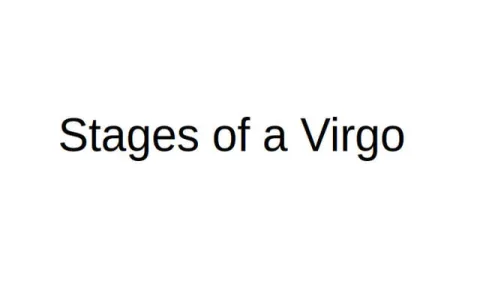The Day I Decided to Stop Fighting the Virgo Male and Start Documenting
Man, living with a Virgo male nearly drove me absolutely nuts. I’m talking years of feeling like I was walking on broken glass. It wasn’t the big fights that killed me; it was the constant, relentless detail management. The nitpicking about the way the groceries were stored, the angle the toothbrush rested at, the volume setting on the TV—it was all scrutinized. You think you’re having a good day, and bam, he hits you with a critique about a sock you missed under the couch. I felt perpetually criticized, like a permanently underperforming employee.
For years, my initial approach was just stupid: I fought back. I tried to argue that “perfection isn’t real” or that he needed to “relax.” Yeah, sure. That only made him retreat into his analytical cave, convinced I was the messy, emotional problem he had to solve. My mental health was circling the drain, and I realized something had to give. I couldn’t change him. I could only change my systems and how I processed his input. This realization marked the beginning of my practice. I grabbed a fresh notebook—an organized one, ironically—and began recording every interaction that caused stress. I decided I was going to treat him like a complex system, and I was going to develop the patch notes myself.
Phase 1: Defining the Variables – Identifying the Triggers
My first three months of practice involved zero confrontation, only observation and detailed logging. I tracked what specific things sent him spiraling. It wasn’t just “mess”; it was lack of structure. If he saw something that wasn’t optimized or efficient, his internal alarm bell went off. My initial list of high-stress zones looked like this:

- Anything left on the kitchen counter for more than 30 minutes.
- Ambiguous scheduling (not knowing exactly when something would happen).
- “Poor” use of resources (leaving lights on, wasting the end of the toothpaste tube).
- Emotional discussions lacking clear “next steps” or resolutions.
The goal wasn’t just to see the problem; it was to understand his need for predictability and control. I realized his criticism wasn’t malice; it was a deeply ingrained compulsion to optimize his environment to reduce his own anxiety. When he complained about the laundry folding, he wasn’t attacking my effort; he was trying to impose order on a chaotic world.
Phase 2: Developing the Firewall – The Emotional Disconnect
This was the hardest part of the practice. I had to learn how to hear his critiques without internalizing them as character flaws. I labeled this phase “The Firewall.” Every time he started a critical sentence, I would mentally pause and ask: “Is this about my value, or is this about his preferred operating procedure?”
I distinctly remember the time he criticized how I loaded the dishwasher—a classic Virgo move. He went on for five solid minutes about optimal water usage and plate placement. In the past, I would have yelled, “Then you do it!” This time, I didn’t. I just stood there, listening, treating his voice like background noise—like someone explaining the rules of a game I didn’t care about. When he finished, I simply said, “Got it. Noted for next time,” and walked away to grab a beer.
The key lesson I documented: Don’t feed the analysis. Don’t argue the logic. Acknowledge the information received (which satisfies his need to be “heard” and “right”) and refuse to engage emotionally. My practice logs showed that when I stopped defending the imperfect action, the lecturing usually stopped within 60 seconds.
Phase 3: Pre-Emptive Control – Building the Virgo-Proof System
Since I couldn’t change him, I decided to manage his environment for him, reducing the opportunities for him to even start criticizing. This meant shifting my own habits significantly. This wasn’t just cleaning; it was strategic cleaning based on my log data.
I initiated what I called “Pre-Emptive Strikes.” Instead of waiting for him to notice the clutter on the coffee table, I cleared it before he walked in the door. If he was stressing about a trip next month, I didn’t just casually mention the flight times; I sent him a detailed, formatted PDF itinerary, complete with confirmation codes, days before he asked. I essentially started providing him with all the necessary data and organization before he could hunt for the flaws himself.
I started delegating specific, contained tasks to him that satisfied his need for detailed oversight, but kept him out of my hair. For instance, he got full control over the household budget tracking and the deep cleaning of the bathroom grout. These tasks require the exact level of meticulousness he possesses, and focusing his analytical energy there reduced his bandwidth for critiquing my more casual approach to life.
Here are my top coping mechanisms I pulled straight from my practice records:
- Delegate the Precision: Give him one area he owns 100% (e.g., the finances, the pantry organization). Let him perfect that area until his heart is content.
- Document Everything: If you agree on a schedule, put it in writing. Verbal agreements mean nothing when a Virgo’s anxiety kicks in. Send a confirming text: “Just confirming, I’ll deal with the utility bill on Tuesday.”
- Acceptance is Peace: Stop trying to change his mind about whether a thing is “good enough.” It is good enough for you, but it will never be perfect for him. That’s his burden, not yours. Don’t try to lift it.
The Result: Harmony Through Data and Distance
It’s been over a year since I implemented this systematic approach. The change isn’t that he became less critical; the change is that I removed 80% of his critique targets and built an impenetrable wall around the remaining 20%. I stopped taking his observations personally, which freed up my own emotional energy.
My final conclusion from this long-running practice? Dealing with the negative traits of a Virgo male isn’t about teaching him how to chill. It’s about accepting that he won’t, and instead, building robust, efficient systems around him. You use his own strengths—organization, detail, and structure—to minimize his weaknesses. It takes effort, but living in a state of controlled, documented order is infinitely better than living in constant chaos and conflict. It worked for me, and my sanity is finally intact.





